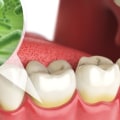Dentists are competent to provide more specialized treatment, while dental hygienists provide general dental care. A dental hygienist will save your teeth by treating gum disease and help people get rid of related problems, such as bad breath. When you go to the dentist, the first person you see is usually the dental hygienist. Just as there are doctors and nurses in hospitals, dental offices have dentists and dental hygienists.
Understanding what each person is doing can help you feel more comfortable during your next appointment. We discuss the difference between the dentist and the dental hygienist and what you should expect from both. When it comes to dentists vs. Dental hygienists, both can do more than an assistant does and require more training, but only the dentist is a doctor.
Hygienists have 3 to 4 years of training, while dentists have a minimum of eight years of education (more than 10 to 11 if they become specialists). Like other medical professions, dental hygienists need special training for their work. However, the duration is short compared to that of a dentist. After completing the required degree program, an aspiring hygienist must pass an exam for a license, which is a permit to practice in their state.
With the license obtained, you can add RDH after your name. When you visit a dentist, the first person you meet is usually a dental hygienist. It's an important part of a dentist's support team. Examine your mouth and make notes of problems, which are then referred to the dentist.
It does not identify or recognize the problem, this work is left to the expert, that is, to the dentist. A dental hygienist provides treatments to ensure good oral health; and indoctrinates you about competencies and, in particular, endorsed products intended to benefit your teeth and gums. If the hygienist notices a potential problem, disclose the information to the dentist, who works under the supervision of a dentist. Dentists Call Themselves “Doctor of Dental Surgery”.
Are doctors of teeth, dentists tend to study for a longer period of time because their responsibilities expand more. Specialization in dentistry requires additional training. Here, dentists specialize in providing care for particular concerns. An example of this is that of a periodontist.
Focuses on treating problems related to the gums. Similarly, an orthodontist treats crooked or curved teeth and incorrect alignments. A dentist licensed to operate oral surgeries is an oral and maxillofacial surgeon. Like hygienists, dentists also need a license to practice in their states.
As the duration of the course is high for dentists, so is the pay. If you want to consider the salary earned by both professions, then being a dentist would be your choice. It's almost double the pay. The work of a dentist is similar to that of a dental hygienist in some respects.
However, there are also some important differences. Website By Avenue Road Advertising & WSI Comandix IS NOW OPEN FOR ALL DENTAL SERVICES. Dental hygienists are the professionals responsible for cleaning a person's teeth before the dentist sees them for a procedure. Their cleanings are designed to treat and prevent oral diseases that then leave the dentist a clean environment to perform their function.
This takes a significant burden off the dentist and frees the dentist to focus more on cavity fillings and examinations. Dental hygienists are also responsible for educating patients on how to better care for their teeth in the future and in which areas of oral hygiene they can improve. Although hygienists are different from nurses, you can think of them as the equivalent of dental nurses when you compare oral health care providers to other medical careers. As a dental hygienist, dentists are doctors with at least eight years of formal education under their belt (four for college students, four for dental school, and even longer if they choose to specialize).
To become a dental hygienist, you can choose to earn an associate's degree or a bachelor's degree in dental hygiene. Over time, the role of the dental hygienist was better defined and separate responsibilities developed both within dental offices and in government licensing. In the early 20th century, dentists began to recognize the need for dental hygienists to help with various tasks related to dental treatment, including scraping and polishing teeth. Dentists can work for the government, for dental corporations, or as associates in another dentist's office.
Oral health is essential to the overall health of the body and a dentist will encourage and help their patients maintain a healthy mouth through regular cleaning and check-ups. If you're already a dental hygienist or dentist, you may find yourself explaining to your friends, family, and patients how one job differs from another. Know the difference between a dental hygienist and a dentist to better understand the process in your local dentist's office. If a person's goal is to be a general dentist, they can practice after earning a dental degree.
That work is left to dentists, who then develop a plan to prioritize treatment and guide the patient to achieve their oral health goals. Contrary to popular belief, not everyone who looks at their teeth in the dentist's office is a dentist. The main differences, apart from education and salary, lie in their responsibilities within dental practice. .
.



